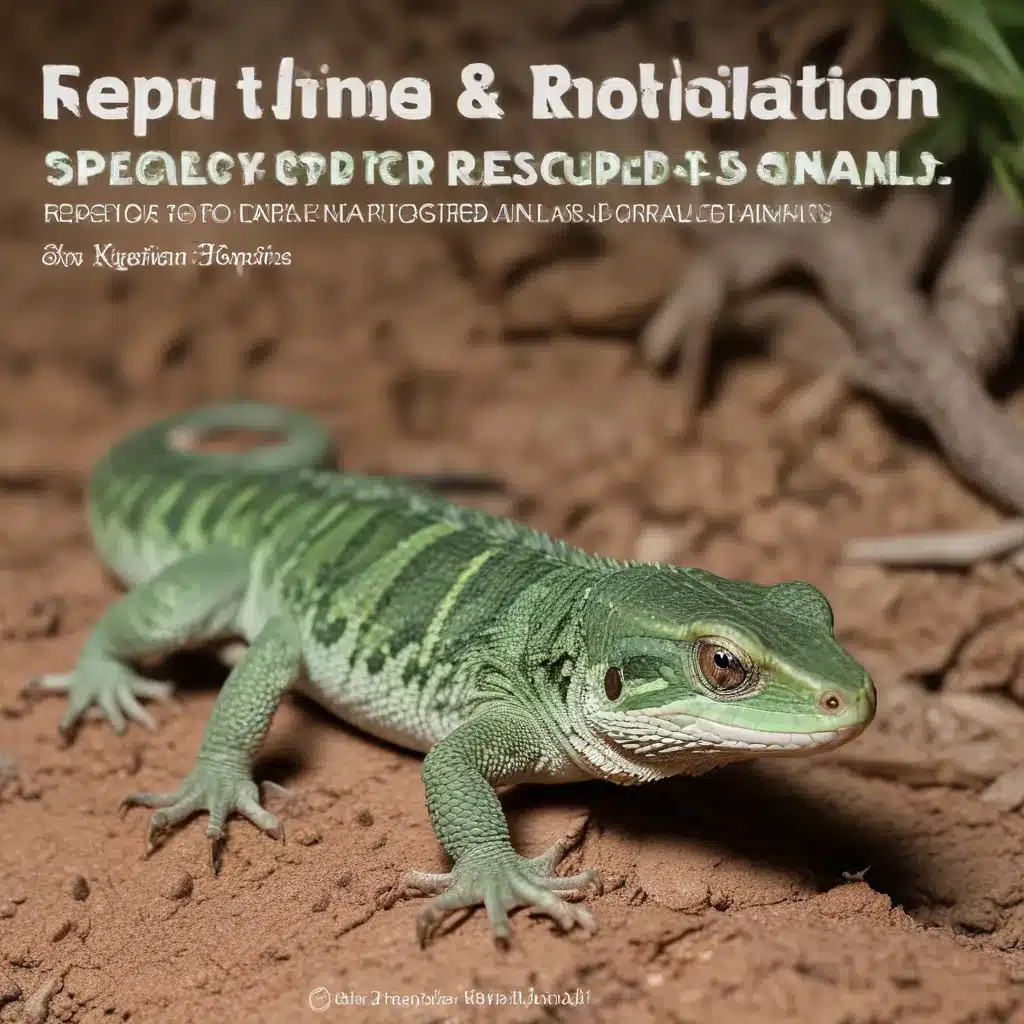
The Importance of Proper Nutrition for Rehabilitating Reptiles
Caring for rescued or rehabilitated reptiles requires a deep understanding of their unique nutritional needs. Reptile species can vary significantly in their dietary requirements, and providing the right balance of nutrients is crucial for their recovery and long-term health. Improper nutrition can lead to a host of issues, from metabolic disorders to compromised immune function, making it essential for reptile rehabilitation centers to prioritize specialized feeding protocols.
When reptiles are brought into a rehabilitation facility, they may be malnourished, dehydrated, or suffering from underlying health conditions. Developing a tailored nutritional plan is the first step in their rehabilitation journey. This often involves conducting thorough assessments to determine the reptile’s specific needs, taking into account factors such as age, species, and the severity of their condition.
Assessing Nutritional Deficiencies and Imbalances
One of the primary challenges in reptile rehabilitation is identifying and addressing nutritional deficiencies or imbalances. Reptiles have complex digestive systems and can be sensitive to changes in their dietary intake. Symptoms of malnutrition can vary widely, from lethargy and poor growth to metabolic bone disease and organ dysfunction.
To ensure a comprehensive assessment, rehabilitation specialists often collaborate with veterinarians and animal nutritionists to perform laboratory tests, such as blood work and fecal analysis. These diagnostic tools help identify any underlying nutrient deficiencies or imbalances, allowing the rehabilitation team to develop a targeted supplementation plan.
Tailoring Feeding Protocols for Optimal Recovery
Once the assessment is complete, the next step is to create a customized feeding protocol that addresses the reptile’s specific needs. This may involve a combination of specialized diets, targeted supplementation, and carefully monitored feeding schedules.
For example, a dehydrated and underweight lizard may require a nutrient-dense, high-calorie diet with added electrolytes to support its recovery. A snake with a compromised digestive system might need a gentle, easily digestible prey item, along with probiotics and digestive enzymes to facilitate nutrient absorption.
Rehabilitation specialists must also consider the unique feeding behaviors and preferences of different reptile species. Some species may be more inclined to accept live prey, while others may respond better to prepared diets. Understanding these nuances and adjusting the feeding approach accordingly is crucial for ensuring the reptile’s acceptance and optimal nutritional intake.
Monitoring and Adjusting the Rehabilitation Plan
Reptile rehabilitation is an ongoing process that requires constant monitoring and adjustments to the feeding protocol. Rehabilitation specialists closely track the reptile’s progress, regularly assessing its physical condition, weight, and overall health. They may need to modify the diet, supplementation, or feeding schedules based on the reptile’s response and any changes in its condition.
Regular communication and collaboration with veterinarians are essential during this process. Rehabilitation specialists work closely with the veterinary team to interpret laboratory results, adjust medication regimens, and ensure a comprehensive approach to the reptile’s care.
Promoting Long-Term Health and Successful Reintroduction
The ultimate goal of reptile rehabilitation is to restore the animal to a healthy state and facilitate its successful reintroduction to its natural habitat. Providing the right nutritional support during the rehabilitation process is a crucial component of this effort, as it lays the foundation for the reptile’s long-term health and resilience.
By mastering the art of specialized reptile nutrition, rehabilitation centers can increase the chances of a successful rehabilitation and release, ensuring that rescued reptiles have the best possible chance of thriving in their natural environments. This not only benefits the individual animal but also contributes to the conservation and protection of these fascinating creatures.
Navigating Legal Considerations for Exotic Reptile Ownership and Sales
Responsible reptile rehabilitation and care go hand-in-hand with ensuring compliance with all relevant laws and regulations. When it comes to the ownership, breeding, and sale of exotic reptile species, there are a number of legal requirements that must be carefully navigated.
Exotic Reptiles for Sale is committed to operating within the bounds of the law and promoting best practices in the reptile community. Across the United States and around the world, there are varying regulations governing the possession, breeding, and commercial sale of reptile species.
In some regions, certain reptile species may be classified as endangered, threatened, or invasive, requiring specialized permits or restrictions on their ownership and trade. Breeders and sellers must stay informed about the legal status of the reptiles they work with and ensure they are in full compliance with all applicable laws.
Additionally, there are often specific requirements for the housing, care, and transportation of exotic reptiles to maintain their health and well-being. Reptile rehabilitation centers and commercial operations must adhere to these guidelines to ensure the animals’ safety and prevent any potential environmental or public health concerns.
By staying up-to-date on the latest legal regulations and best practices, reptile enthusiasts, breeders, and rehabilitation specialists can ensure they are operating responsibly and ethically within the industry. This not only protects the reptiles in their care but also contributes to the overall conservation and responsible management of these remarkable creatures.
Conclusion
Providing specialized nutritional care for rescued and rehabilitated reptiles is a critical component of their recovery and successful reintroduction. By understanding the unique dietary requirements of different reptile species, rehabilitation specialists can develop tailored feeding protocols that address nutritional deficiencies, support the healing process, and lay the foundation for long-term health.
Through a collaborative approach that involves veterinary professionals, animal nutritionists, and a deep understanding of reptile biology, rehabilitation centers can ensure that rescued reptiles receive the care they need to thrive. By upholding legal and ethical standards in the reptile industry, these centers also play a vital role in the conservation and responsible management of these fascinating animals.
As the demand for exotic reptiles continues to grow, it is essential that reptile enthusiasts, breeders, and rehabilitation specialists remain committed to providing the highest level of care and adhering to all relevant laws and regulations. By doing so, they can not only ensure the well-being of individual reptiles but also contribute to the long-term preservation of these remarkable creatures and their habitats.

